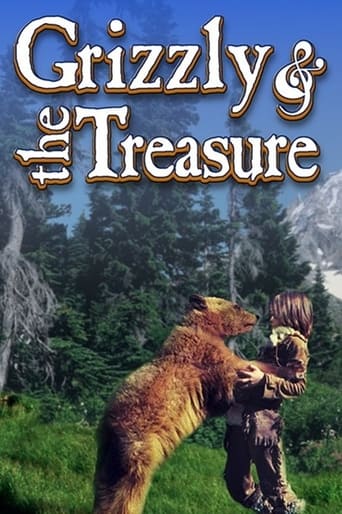

Wilderness family movies are almost invariably packed full of threadbare coincidences, improbable plot twists, and out-and-out violations of physical law. In that respect, this film is only typical of the genre. In many other respects, it is distinctly sub-par. The previous reviewer has already commented on the overuse of the narrator (who sounded a bit like Denver Pyle, but probably wasn't). To make matters worse, this ostensibly omniscient observer seems perpetually confused about exactly where his characters live. First he settles them in the Yukon. Then he moves them to Alaska (a different place, honest). Then he sends one of them on a trek to the Hudson's Bay Trading Post (definitely not in Alaska). Maybe their cabin straddles the border between the Yukon and Alaska, but this is never clarified.Of course, a film like this can be picked to pieces by anyone with the time and inclination. Here are a few of the other errors and incongruities that I happened to notice in a single viewing:1. The last I heard, there are no rattlesnakes in either Alaska or the Yukon. 2. The allegedly recently born bear cub (first snow he's ever seen) appears to be at least a year old, and possibly older. 3. The year is supposedly 1898 (not 1798), so why is Ezra carrying a flintlock rifle and powder horn? A family heirloom, perhaps? 4. The family sets out from Edmonton, Alberta with a single pack horse, which does not appear to be overloaded. Nevertheless, when they arrive at the purportedly abandoned cabin, the garrulous narrator informs us that they have brought provisions for the entire summer, including 350 pounds of flour, as well as bacon, beans and other goodies. To this must be added bedding, clothing, cooking utensils, pots and pans, as well as tools, prospecting equipment, and even a case of dynamite. Not to mention all the other items I've probably forgotten. All that on a single horse? I doubt even a Clydesdale could have carried all that stuff from Edmonton to the Yukon (or Alaska) single-handedly. 5. I don't care how "lucky" he thinks he is, what kind of dumb damn greenhorn cheechako would take his wife and child to the Great White North without even bothering to pack winter coats for the three of them? (And he supposedly researched the matter thoroughly.)Well, enough of this. On to the nude scene. Since the family didn't bring along any winter clothing, naturally winter sets in early, and the ever-loquacious narrator remarks that baths are becoming increasingly difficult to manage. Then a conveniently located hot spring comes to light, and while greed-crazed Ezra is out digging for gold, mom and junior decide to go skinny dipping together. However, those of a prurient inclination should not get their hopes up too high. Despite the scandalous implications and clearly affectionate physical contact betwixt the two of them, the whole thing comes off pretty much as innocent as it was probably intended to be. No naughty bits are visible, no incestuous intentions are evident, and they even have the bear along as a chaperone.
... View MoreEven when I first saw this as a kid, I noted with disappointment there was nothing special about it. For once, the plot isn't my complaint; it's really quite interesting: a dentist-turned prospector, Ezra, brings his family from California to Alaska in the late 18th century in search of gold. After finding it, however, he's reluctant to leave, even when winter sets in early. Also, he's become cold and miserly, and when he attempts to dispose of the grizzly cub his 10-year-old son Kidd takes in, he's wounded by its mother and his family is stranded in the unforgiving climate. I guess there's even a good moral thrown in to those who want it. The score and footage of wildlife throughout the movie are enjoyable, but there is another sound which spoils almost everything good in it - the narration. It used the word "gold" about 100 times when referring to the protagonist's obsession, and I was surprised the writers never thought of saying "riches", "treasure", or "wealth" for a change. It also describes everything that happens detail by detail, which robs the actors of plenty of chances to converse with each other and let the audience note for itself what's happening. As a result little character development is shown. Eve becomes less timid and Ezra probably has a change of heart after his injury - though we never know for sure. He never speaks after he's mauled; the narrator only says Eve knows he'll change. I felt there were many chances to get a deeper view at the story that were flung at me by a background storyteller. This isn't bad, but it's very mediocre.
... View More